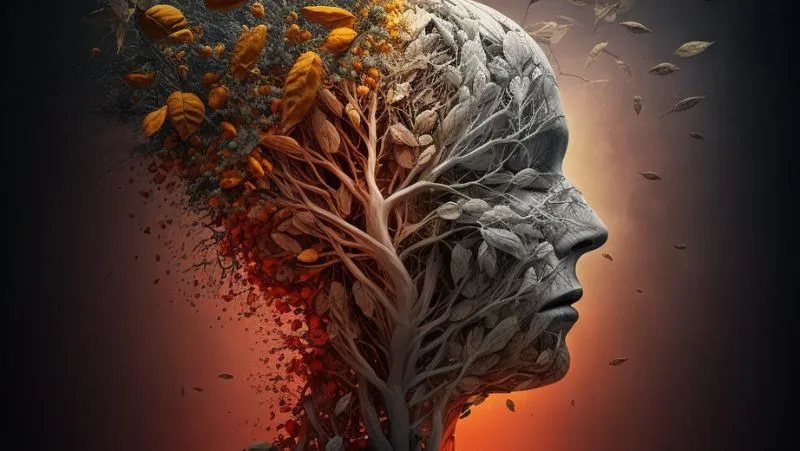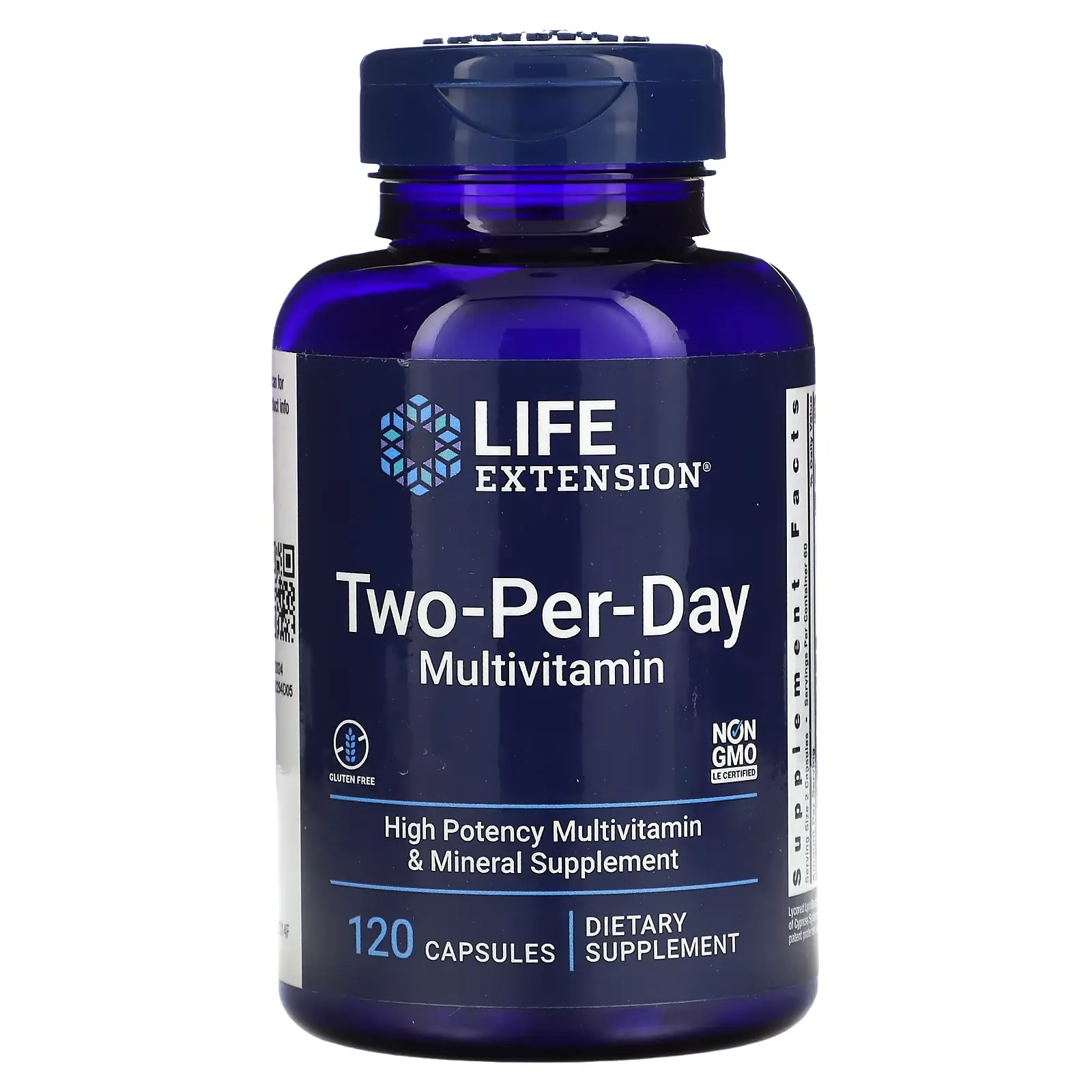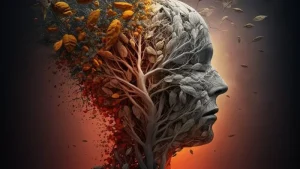Spoilers for this article
- ashwagandha (type of Indian cactus)reduces anxiety: anxiety behaviors due to social isolation areashwagandha (type of Indian cactus)wild rocambole (edible plant, Allium grayi)essenceDecreased with administration.
- It also exhibits antidepressant effects:ashwagandha (type of Indian cactus)is also effective for depressive symptoms, forced swimming tests suggest.
- Synergy with diazepam:ashwagandha (type of Indian cactus)and diazepam may enhance anxiolytic effects.
'Lately, I've been feeling isolated and my anxiety and depression have been getting worse.'
I'm looking for ways to alleviate anxiety and depression with natural ingredients."
."ashwagandha (type of Indian cactus)and diazepam together, but with what effect?"
In this issue, we introduce a paper for such people.
In this article, we will discuss the natural components of theashwagandha (type of Indian cactus)is effective in alleviating anxiety and depression symptoms caused by social isolationExplanation of the
In addition, theSynergy with DiazepamAlso includes
Diazepam" is a drug that helps relieve anxiety and tension.
Details are described below.
If you want to know how to support your mental health, this article is for you.
What is ashwagandha in the first place?
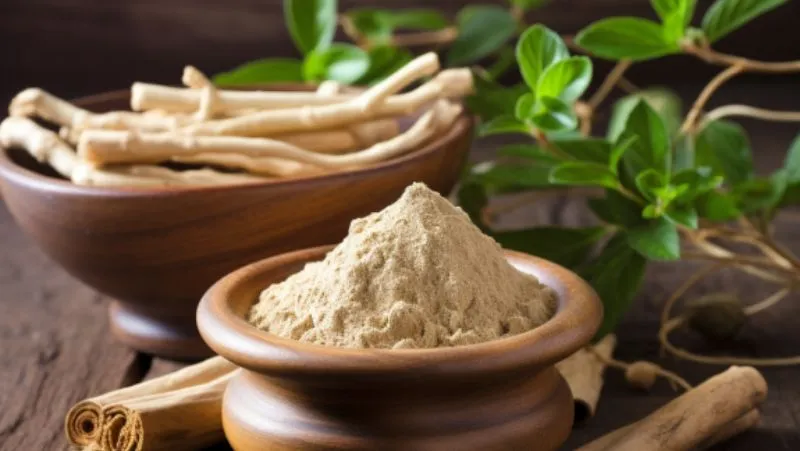
ashwagandha (type of Indian cactus)(scientific name: Withania somnifera Dunal) has been used for thousands of years in Ayurveda, the traditional medicine of India, to treat both physical and mental health problems.stressThe herb has been used as an effective medicine, tonic, and even aphrodisiac.
Nowadays, the effectiveness of these products has been proven by modern science through various clinical studies, and they are attracting attention.
The fruit is an evergreen shrub of the eggplant family. The name comes from the horse's (ashwa) smell (ganda).
Some say it is named after the robust vigor of horses.
▼Recommended Articles

Basic information about the paper
The basic information for this paper is as follows
The paper presented in this issue ofWithania somnifera dunal (ashwagandha (type of Indian cactus)rootessenceProtective effects on long-term social isolation-induced behavior in rats of(Japanese translation)".

Research Background
ashwagandha (type of Indian cactus)and the effects of social isolation on behavior for beginners.
Overview of Ashwagandha (Withania somnifera)
ashwagandha (type of Indian cactus)is a member of the eggplant family and is native to arid regions of India and Africa.
In Ayurvedic medicine,Roots and leaves.stressEasing andimmunityImprovement and other effectsIt is believed that there are
Impact of social isolation on behavior
Social isolation is,Increased anxiety and depression, decreased self-esteem,stressmay cause a variety of physical and mental problems, such as the accumulation ofThere are
These problems not only negatively affect a person's physical and mental health, but can also have a negative impact on daily life and relationships.
If this experiment seems to produce results,ashwagandha (type of Indian cactus)may help alleviate these physical and mental problems caused by social isolation (seeSpoiler alert: There was one.(See Section 2.1.2.).
research methods
ashwagandha (type of Indian cactus)and research methods to investigate how diazepam mitigates the behavioral effects of social isolation.
- diazepam
-
Benzodiazepines used as anxiolytics and muscle relaxants.
It is primarily useful in the treatment of anxiety, nervousness, epilepsy, and muscle spasms.
It may also be used to relieve alcohol withdrawal symptoms and as a sedative before surgery.
By activating GABA receptors in the brain, diazepam inhibits neurotransmitter activity, resulting in relaxation.
- benzodiazepine
-
A type of drug used to relieve symptoms of anxiety, insomnia, epilepsy, and muscle spasms.
These drugs work by stimulating receptors for gamma-aminobutyric acid (GABA), a neurotransmitter in the brain, to reduce brain excitation.
As a result, a relaxing and sedative effect appears.
However, prolonged use or overdose can cause dependence and withdrawal symptoms, so care should be taken.
- Induced social isolation in experimental animals (rats)
In the study, rats were kept alone for 6 weeks to induce social isolation.
- ashwagandha (type of Indian cactus)and diazepam administration
ashwagandha (type of Indian cactus)were administered orally at doses of 100, 200, and 500 mg/kg and diazepam was administered intraperitoneally at doses of 1 or 2 mg/kg.
- Evaluation methods: Elevated Cross Maze Test (EPM) and Forced Swim Test (FST)
The Elevated Crossed Maze Test (EPM) and the Forced Swim Test (FST) were used to assess anxiety and depressive symptoms.
- Elevated Crossed Maze Test (EPM)
-
Experiments used to measure anxiety and fear responses in animals.
EPMs are usually cruciform in structure and consist of two open sections and two closed sections.
Because animals prefer both open and closed areas, their behavior may represent a balance between natural exploratory behavior and anxiety responses.
This test is primarily used to evaluate the effects of drugs and genetic manipulation.
- Forced Swim Test (FST)
-
Forced swim test,Test to measure ability to swim a certain distance and timeIn,stressand anxiety, and is widely used to study the effects of antidepressants.
This method is particularly commonly used in experiments with mice and rats.
EPM assessed anxiety levels by measuring how long rats stayed on the open road and how often they entered.
In the FST, rats were observed swimming or remaining motionless to assess depressive symptoms.
result
ashwagandha (type of Indian cactus)and how diazepam works with the effects of social isolation on behavior.
Impact of social isolation on behavior
Social isolation induced rats,Less time spent in the open arms with EPM and more time without movement with FSTIt was observed that
Anxiolytic effects of ashwagandha and diazepam
ashwagandha (type of Indian cactus)and diazepam are both dose-dependent.Increased time and frequency of stays in the open arms at EPM and showed an anxiolytic effect.
Synergistic effects of ashwagandha and diazepam
ashwagandha (type of Indian cactus)Even at low doses (50 mg/kg), where the effect ofSynergistic effect of increased anxiolytic effect observed when used in combination with diazepamThe first time the company was founded, it was a "new" company.
Antidepressant effects of ashwagandha
ashwagandha (type of Indian cactus)decreases the no-operation time at the FST,Demonstrated antidepressant effectThe following is a list of the most common problems with the
The effect of this,It was found not only in rats exposed to social isolation, but also in rats raised in groups.
By this,ashwagandha (type of Indian cactus)is also effective against depressive symptomsIt is suggested that this is the case.
consideration
ashwagandha (type of Indian cactus)and diazepam, and how the anxiolytic and antidepressant effects of diazepam andinteractionThis section discusses whether to
Mechanisms of the anxiolytic and antidepressant effects of ashwagandha
ashwagandha (type of Indian cactus)The active ingredients of the,Regulate the balance of neurotransmitters,stressInhibited reactions.
By this,Exhibits anxiolytic and antidepressant effectsThis is considered to be the case.
Interactions with Diazepam
ashwagandha (type of Indian cactus)and diazepam promote the action of the same neurotransmitters, possibly resulting in a synergistic effect.
By this,The combination of both enhances the anxiolytic effect.This is considered to be the case.
Dose-dependent effects of ashwagandha
ashwagandha (type of Indian cactus)The anxiolytic and antidepressant effects ofBecomes stronger as dose increases.It was shown that
However, it is important to select the appropriate dosage,An overdose isside effectIt should be noted that this can causeIt is.
Conclusion.
Through this study,ashwagandha (type of Indian cactus)The anti-anxiety and antidepressant effects of
I knew it.
Confirmation of the anxiolytic and antidepressant effects of ashwagandha
From research results,ashwagandha (type of Indian cactus)school (e.g. of ikebana)Effective against anxiety and depression due to social isolationThe results of the survey confirmed that
Ashwagandha as a Potential Mood Stabilizer
ashwagandha (type of Indian cactus)is a naturally occurring component,side effectfrom the fact that there are few,Potential as a mood stabilizer as an alternative treatment to chemical agentsThere are
Support for the Use of Ashwagandha in Ayurveda
In traditional Ayurvedic medicine,ashwagandha (type of Indian cactus)school (e.g. of ikebana)stressand anxiety.
The results of this study are,In Ayurveda.ashwagandha (type of Indian cactus)Provides scientific evidence to support the use ofThe company is doing so.
summary
In this study,ashwagandha (type of Indian cactus)(Withania somnifera) by social isolation in rats.Effective against anxiety and depressionIt was shown that
ashwagandha (type of Indian cactus)exhibited anxiolytic effects similar to those of diazepam, and was also found to have antidepressant effects.
In addition, theashwagandha (type of Indian cactus)and diazepam, a synergistic effect was observed.
The result,In Ayurvedic medicine.ashwagandha (type of Indian cactus)Provides scientific evidence to support the use ofThe company has been working to identify the active ingredients and otherstressIt is expected that the effect will be verified in the induced model.
FAQ
- アシュワガンダはどのような用量が効果的ですか?
-
In this study, ashwagandha was administered at doses of 100, 200, and 500 mg/kg and showed anxiolytic and antidepressant effects.
- アシュワガンダとジアゼパムの併用は安全ですか?
-
In this study, low doses of ashwagandha (50 mg/kg) combined with diazepam (0.5, 1, or 2 mg/kg) enhanced anxiolytic effects.
しかし、個別の症状や体質によって効果や副作用が異なるため、医師と相談して使用することが重要です。
- アシュワガンダはどのような状況で使用されるのですか?
-
アシュワガンダは、不安やうつ症状を和らげるために用いられます。
特に、社会的孤立やストレスが原因で生じる心身の不調に効果があるとされています。
また、アーユルヴェーダ医学では、気分安定剤としてアシュワガンダが使用されています。
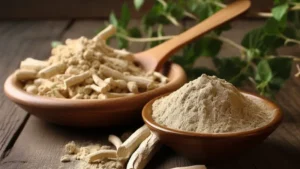
Disclaimer
This site is primarily intended toashwagandha (type of Indian cactus)to provide information about the results of the study and not to provide medical advice.
It is not intended to diagnose, treat, or prevent any specific disease or condition.
Always follow professional advice when using the information on this site.
We also cannot be held responsible for any loss or damage that you may suffer as a result of acting on the basis of the information on this site.
Use of AI in Content Generation
This website uses AI-based automatic generation for some content.
The information generated by this automatic generation is checked against actual references and articles, and great care is taken to ensure accuracy and reliability.
It is also intended to enhance the transparency and credibility of this site by appropriately disclosing content created through automatic generation.
We believe that this site can provide richer and more useful content through automation and AI-based content creation, which will enable us to provide information more quickly and accurately.
